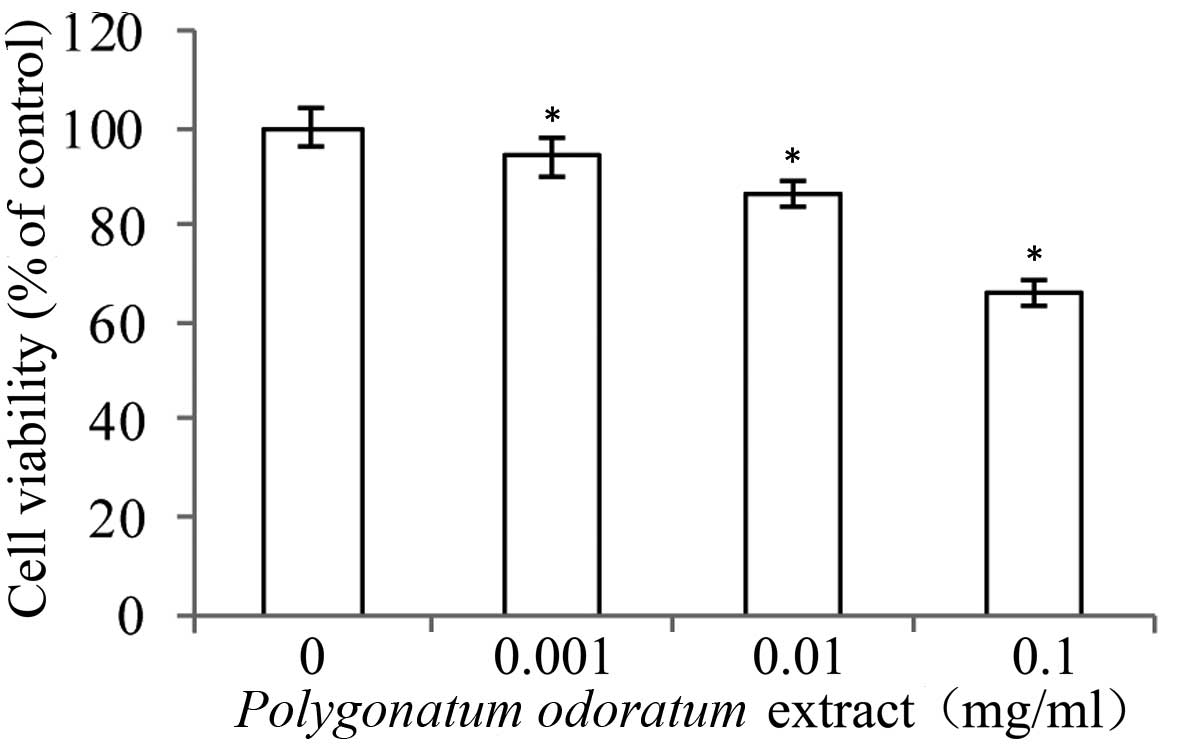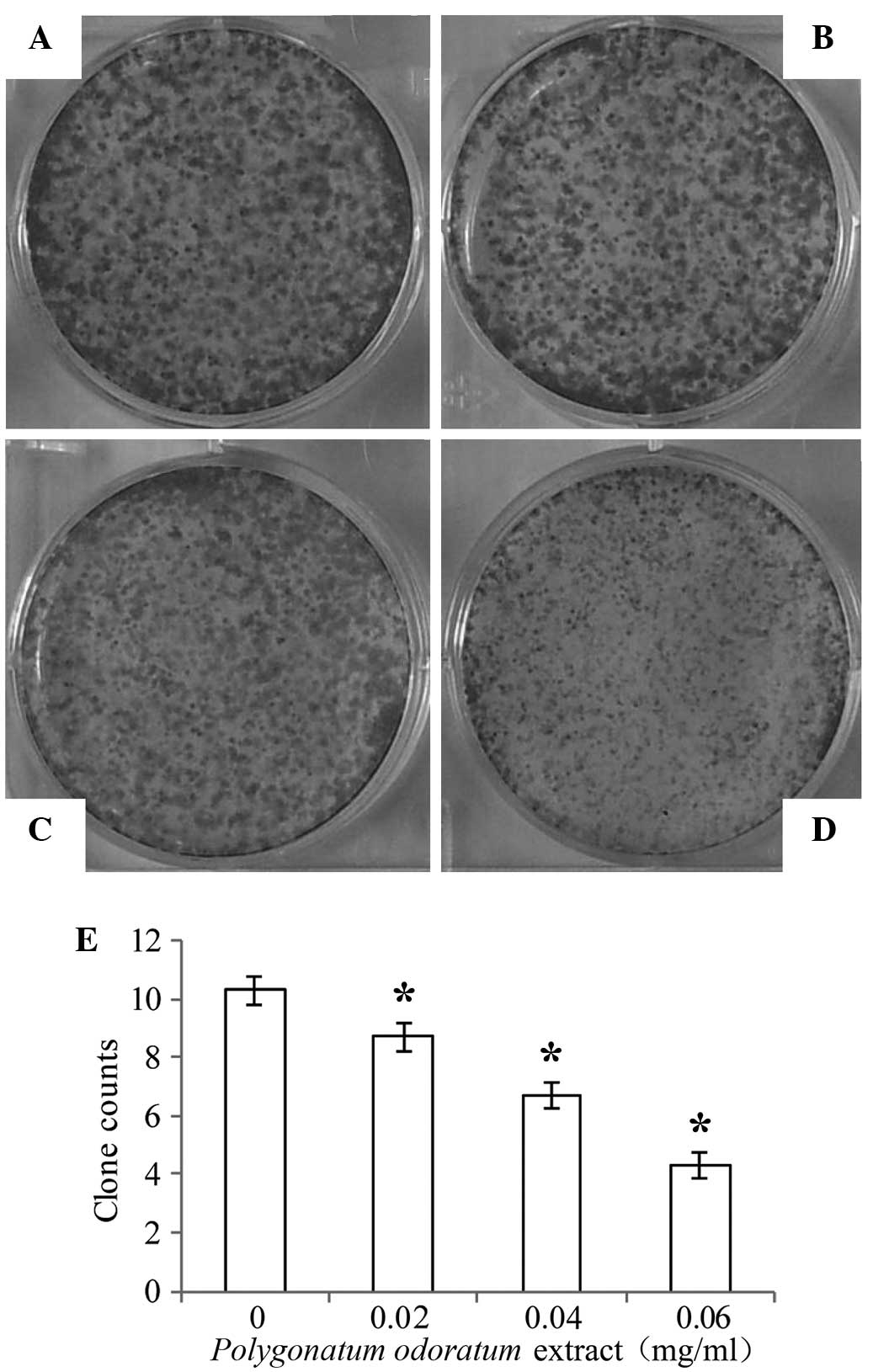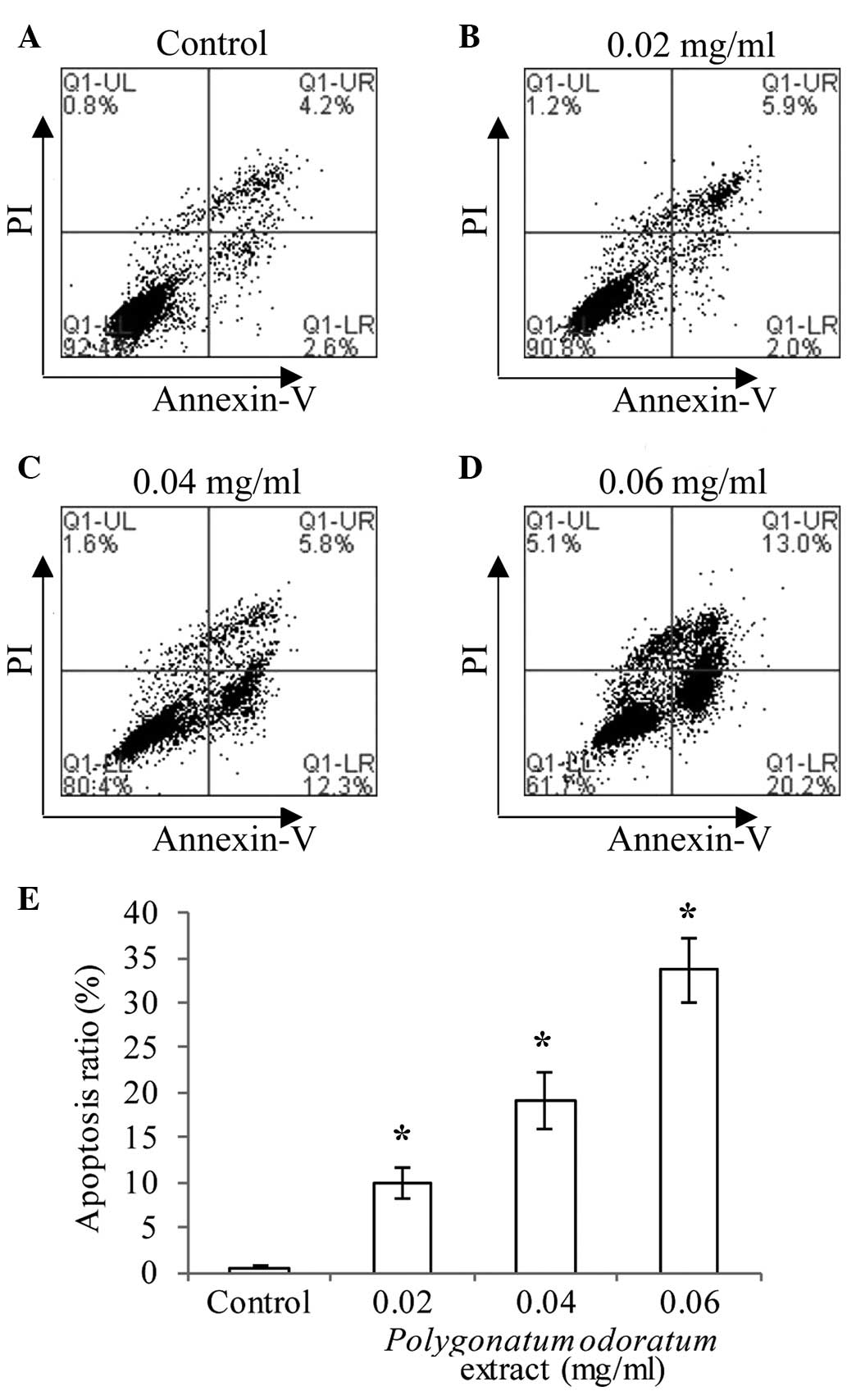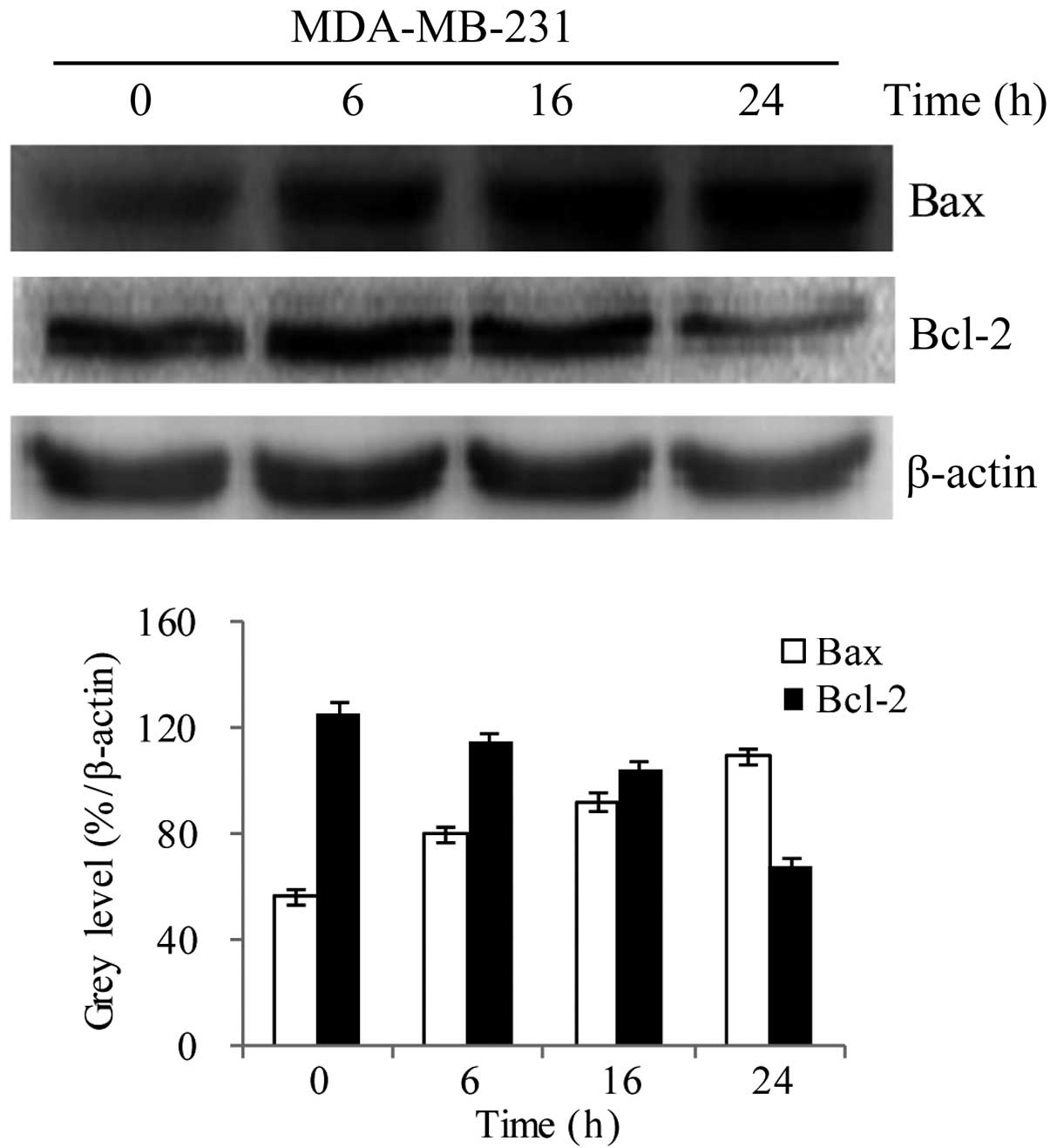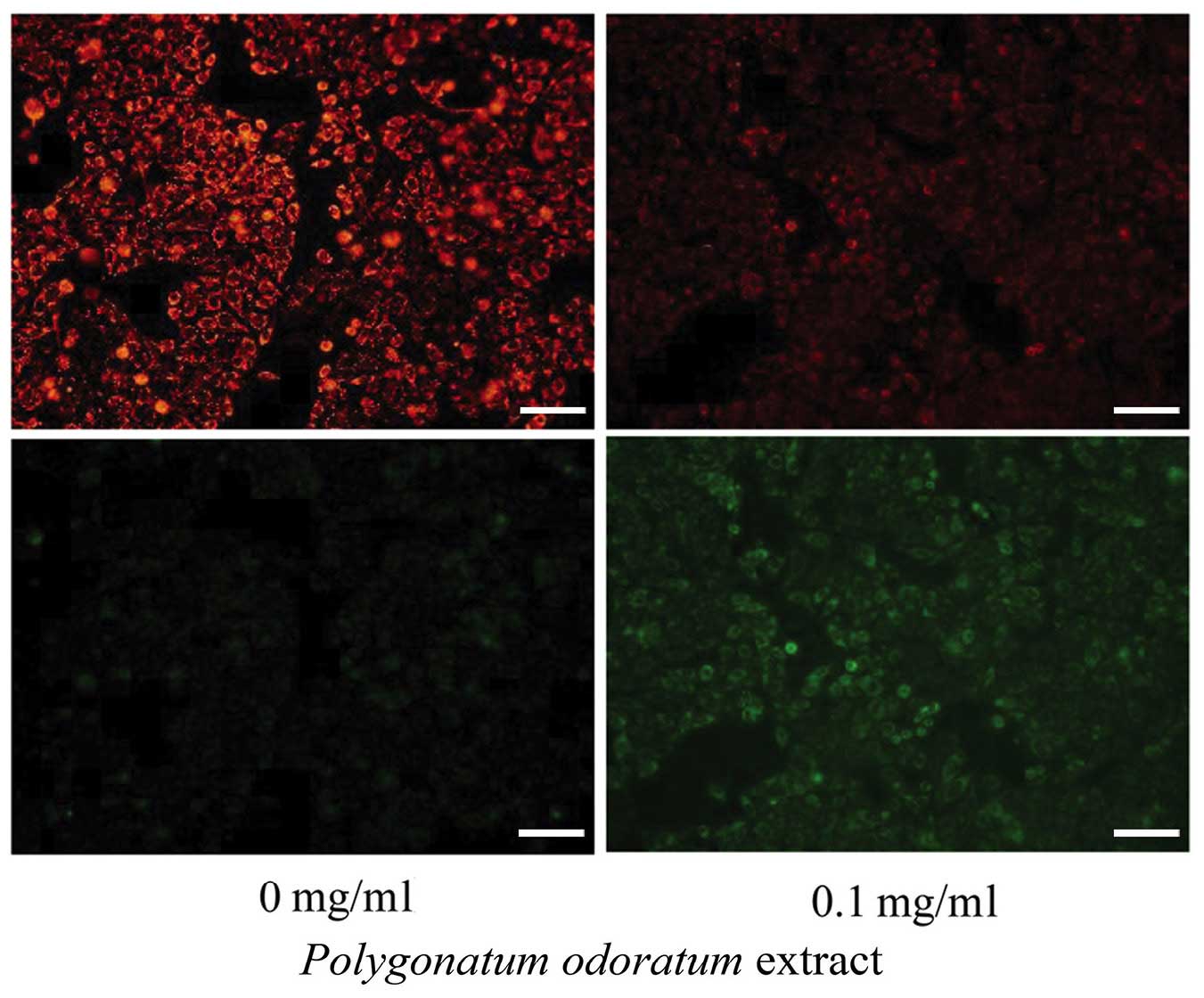|
1
|
Ferlay J, Shin HR, Bray F, Forman D,
Mathers C and Parkin DM: Estimates of worldwide burden of cancer in
2008: GLOBOCAN 2008. Int J Cancer. 127:2893–2917. 2010. View Article : Google Scholar : PubMed/NCBI
|
|
2
|
Kim SH, Son BH, Hwang SY, Han W, Yang JH,
Lee S and Yun YH: Fatigue and depression in disease-free breast
cancer survivors: prevalence, correlates, and association with
quality of life. J Pain Symptom Manage. 35:644–655. 2008.
View Article : Google Scholar : PubMed/NCBI
|
|
3
|
Fann JR, Thomas-Rich AM, Katon WJ, Cowley
D, Pepping M, McGregor BA and Gralow J: Major depression after
breast cancer: A review of epidemiology and treatment. Gen Hosp
Paychiatry. 30:122–126. 2008.
|
|
4
|
Karakoyun-Celik O, Gorken I, Sahin S,
Orcin E, Alanyali H and Kinay M: Depression and anxiety levels in
woman under follow-up for breast cancer: Relationship to coping
with cancer and quality of life. Med Oncol. 27:108–113. 2010.
View Article : Google Scholar : PubMed/NCBI
|
|
5
|
Xu LX, Shen SS, He JJ, Fu Y, Xue XD, Liang
Y, Lin Y, Zhang XH and He JC: Relationship among anxiety,
depression, well-being index and social support in breast cancer
patients. Zhong Guo Xin Li Wei Sheng Za Zhi. 27:473–478. 2013.
|
|
6
|
DeSantis C, Ma J, Bryan L and Jemal A:
Breast cancer statistics, 2013. CA Cancer J Clin. 64:52–62. 2014.
View Article : Google Scholar : PubMed/NCBI
|
|
7
|
Ferlay J, Soerjomataram I, Dikshit R, Eser
S, Mather C, Rebelo M, Parkin DM, Forman D and Bray F: Cancer
incidence and mortality worldwide: sources, methods and major
patterns in GLOBOCAN 2012. Int J Cancer. 136:E359–E386. 2015.
View Article : Google Scholar : PubMed/NCBI
|
|
8
|
Green J, Cairns BJ, Casabonne D, Wright
FL, Reeves G and Beral V: Million Women Study collaborators: Height
and cancer incidence in the Million Women Study: prospective
cohort, and meta-analysis of prospective studies of height and
total cancer risk. Lancet Oncol. 12:785–794. 2011. View Article : Google Scholar : PubMed/NCBI
|
|
9
|
Mellemkjaer L, Christensen J, Frederiksen
K, Baker JL, Olsen A, Sørensen TI and Tjønneland A: Leg length,
sitting height and postmenopausal breast cancer risk. Br J Cancer.
107:165–168. 2012. View Article : Google Scholar : PubMed/NCBI
|
|
10
|
Ritte R, Lukanova A, Tjonneland A, Olsen
A, Overvad K, Mesrine S, Fagherazzi G, Dossus L, Teucher B,
Steindorf K, et al: Height, age at menarche and risk of hormone
receptor-positive and -negative breast cancer: A cohort study. Int
J Cancer. 132:2619–2629. 2013. View Article : Google Scholar : PubMed/NCBI
|
|
11
|
Kabat GC, Kim MY, Hollenbeck AR and Rohan
TE: Attained height, sex, and risk of cancer at different anatomic
sites in the NIH-AARP Diet and Health Study. Cancer Causes Control.
25:1697–1706. 2014. View Article : Google Scholar : PubMed/NCBI
|
|
12
|
Ni ZJ, Wang HS and Chen YX: The trend
analysis of mortality with female breast cancer during 1989-2008,
Haimen city. Jiang Su Yu Fang Yi Xue. 20:1–3. 2009.(In
Chinese).
|
|
13
|
Pan XD, Wang HW and Li X: Breast cancer
mortality tendency among women from 1992 to 2006 in Shenyang. Zhong
Guo Fu You Bao Jian. 23:4703–4705. 2008.(In Chinese).
|
|
14
|
Wang Y, Ma Q, Li HQ, Diao YT, Yin C, Ciu
YC, Xu AQ, Ma JQ and Guo XL: Changing trend of female breast cancer
mortality in Shandong province, 1970-2005. Zhong Hua Zhong Liu Fang
Zhi Za Zhi She. 16:729–732. 2009.(In Chinese).
|
|
15
|
Liang YQ: Analysis of female breast cancer
mortality in Nanjing in 1997-2005. Zhi Ye Yu Jian Kang. 23:357–358.
2007.(In Chinese).
|
|
16
|
Blichert-Toft M, Nielsen M, During M,
Møller S, Rank F, Overgaard M and Mouridsen HT: Long-term results
of breast conserving surgery vs. mastectomy for early stage
invasive breast cancer: 20-year follow-up of the Danish randomized
DBCG-82TM protocol. Acta Oncol. 47:672–681. 2008.
|
|
17
|
Goldhirsch A, Wood WC, Gelber RD, Coates
AS, Thürlimann B and Senn HJ: 10th St. Gallen conference: Progress
and promise: Highlights of the international expert consensus on
the primary therapy of early breast cancer 2007. In: Ann Oncol. 18.
pp. 1133–1144. 2007; View Article : Google Scholar : PubMed/NCBI
|
|
18
|
Ahunbay EE, Robbins J, Christian R, Godley
A, White J and Li XA: Interfractional target variations for partial
breast irradiation. Int J Radiat Oncol Biol Phys. 82:1594–1604.
2012. View Article : Google Scholar : PubMed/NCBI
|
|
19
|
Yamashiro H and Toi M: Molecular targeted
therapy for breast cancer treatment, challenge to cure. Nihon
Rinsho. 68:1854–1858. 2010.(In Japanese). PubMed/NCBI
|
|
20
|
Chen SS and Yu ZH: Recent research on
traditional Chinese medicine in the treatment of breast cancer.
Modern Oncology. 23:2072–2077. 2015.
|
|
21
|
Kim J, Han JY, Shaw B, McTavish F and
Gustafson D: The roles of social support and coping strategies in
predicting breast cancer patients' emotional well-being: Testing
mediation and moderation models. J Health Psychol. 15:543–552.
2010. View Article : Google Scholar : PubMed/NCBI
|
|
22
|
Li J, Huang XY, Zou XZ, Wei W and Wang ZX:
Clinical curative effect of traditional Chinese medicine, western
medicine Fuzheng attack comprehensive treatment of malignant tumor.
Zhong Guo Yi Yao Dao Kan. 3:529–530. 2014.(In Chinese).
|
|
23
|
Chen YE, Wang SP, Hu YY, Chen MW and Wang
YT: Research in novel drug delivery system of anti-tumor Chinese
medicine (part three) - Fuzheng guben Chinese medicine. Shi Jie Ke
Xue Ji Shu-Zhong Yi Yao Xian Dai Hua. 2:201–206. 2013.(In
Chinese).
|
|
24
|
Commission of Pharmacopoeia, . Chinese
Pharmacopoeia: Part One. China Medical Science and Technology
Press; Beijing: 2010
|
|
25
|
He Zhijun: A summary on 42 cases of type 2
diabetes treated by Gegeng Danshen Yuzhu decoction. Hu Nan Zhong Yi
Za Zhi. 24:10–11. 2008.
|
|
26
|
Shu XS, Lv JH, Tao J, Li GM, Li HD and Ma
N: Antihyperglycemice effects of total flavonoids from Polygonatum
odoratum in STZ and alloxan-induced diabetic rats. J
Ethnopharmacol. 124:539–543. 2009. View Article : Google Scholar : PubMed/NCBI
|
|
27
|
Yang HJ, Yang SH, Zhang HT, Ma L and Zhang
LC: Polygonatum odoratum chemical composition, pharmacological
effects research progress and the present situation of the
development and utilization. Ren Shen Yan Jiu. 3:40–45. 2012.(In
Chinese).
|
|
28
|
Li CY, Pan XY, Zhang MC and Liu H: The
antineoplastic mechanism of the extract B of Polygonatum odoratum.
Zhong Guo Mian Yi Xue Za Zhi. 4:253–254. 2003.(In Chinese).
|
|
29
|
Zhang H, Chen L, Kou JP, Zhu DN, Qi J and
Yu BY: Steroidal sapogenins and glycosides from the fibrous roots
of Polygonatum odoratum with inhibitory effect on tissue factor
(TF) procoagulant activity. Steroids. 89:12014. View Article : Google Scholar : PubMed/NCBI
|
|
30
|
Deng Y, He K, Ye X, Chen X, Huang J, Li X,
Yuan L, Jin Y, Jin Q and Li P: Saponin rich fractions from
Polygonatum odoratum (Mill.) Druce with more potential hypoglycemic
effects. J Ethnopharmacol. 141:228–233. 2012. View Article : Google Scholar : PubMed/NCBI
|
|
31
|
Park S, Hong SM, Ahn IS, Kim YJ and Lee
JB: Huang-Lian-Jie-Du-Tang supplemented with Schisandra chinensis
Baill and Polygonatum odoratum Druce improved glucose tolerance by
potentiating insulinotropic actions in islets in 90%
pancreatectomized diabetic rats. Biosci Biotechnol Biochem.
73:2384–2392. 2009. View Article : Google Scholar : PubMed/NCBI
|
|
32
|
Park S, Hong SM, Ahn IS, Kim YJ and Lee
JB: Huang-Lian-Jie-Du-Tang supplemented with Schisandra chinensis
Baill. and Polygonatum odoratum Druce improved glucose tolerance by
potentiating insulinotropic actions in islets in 90%
pancreatectomized diabetic rats. Biosci Biotechnol Biochem.
73:2384–2392. 2009.
|
|
33
|
Yang Y, Xu HL, Zhang ZT, Liu JJ, Li WW,
Ming H and Bao JK: Characterization, molecular cloning, and in
silico analysis of a novel mannose-binding lectin from Polygonatum
odoratum (Mill.) with anti-HSV-II and apoptosis-inducing
activities. Phytomedicine. 18:748–755. 2011. View Article : Google Scholar : PubMed/NCBI
|
|
34
|
Ouyang L, Chen Y, Wang XY, Lu RF, Zhang
SY, Tian M, Xie T, Liu B and He G: Polygonatum odoratum lectin
induces apoptosis and autophagy via targeting EGFR-mediated
Ras-Raf-MEK-ERK pathway in human MCF-7 breast cancer cells.
Phytomedicine. 21:1658–1665. 2014. View Article : Google Scholar : PubMed/NCBI
|
|
35
|
Rafi MM and Vastano BC: Identification of
a structure specific Bcl-2 phosphorylating homoisoflavone molecule
from Vietnamese coriander (Polygonatum odoratume) that induces
apoptosis and G2/M cell cycle arrest in breast cancer cell lines.
Food Chem. 104:332–340. 2007. View Article : Google Scholar
|
|
36
|
Yang H, Huang WR and Yu L: Clinical
application and research process of novel antitumor drug. J New
Med. 19:480–485. 2010.
|
|
37
|
Vaux DL: Apoptosis timeline. Cell Death
Differ. 9:349–354. 2002. View Article : Google Scholar : PubMed/NCBI
|
|
38
|
Edinger AL and Thompson CB: Death by
design: Apoptosis, necrosis and autophagy. Curr Opin Cell Biol.
16:663–669. 2004. View Article : Google Scholar : PubMed/NCBI
|
|
39
|
Vaux DL, Cory S and Adams JM: Bcl-2 gene
promotes haemopoietic cell survival and cooperates with c-myc to
immortalize pre-B cells. Nature. 335:440–442. 1988. View Article : Google Scholar : PubMed/NCBI
|
|
40
|
Wang T, Liu CZ, Liu YZ, Yu JC and Han JX:
Research progress of Bcl-2/Bax gene regulated mechanism for
organism cell apoptosis. Zhong Guo Lao Nian Xue Za Zhi.
16:1658–1660. 2008.(In Chinese).
|
|
41
|
Li M and Lin J: The apoptotic pathways and
their mechanisms. Guo Ji Fu Chan Ke Xue Za Zhi. 2:103–107. 2014.(In
Chinese).
|
|
42
|
Xu RR and Li YD: Research progress of
Bcl-2 families interact with mitochondrial apoptosis pathway. Zhong
Guo Lao Nian Xue Za Zhi. 12:2977–2979. 2013.(In Chinese).
|
|
43
|
Oltvai ZN, Milliman CL and Korsmeyer SJ:
Bcl-2 heterodimerizes in vivo with a conserved homolog, Bax, that
accelerates programmed cell death. Cell. 74:609–619. 1993.
View Article : Google Scholar : PubMed/NCBI
|
|
44
|
Alsabeh R, Wilson CS, Ahn CW, Vasef MA and
Battifora H: Expression of Bcl-2 by breast cancer: A possible
diagnostic application. Mod Pathol. 9:439–444. 1996.PubMed/NCBI
|
|
45
|
Garner DL, Thomas CA, Joerg HW, DeJarnette
JM and Marshall CE: Fluorometric assessments of mitochondrial
function and viability in cryopreserved bovine spermaotozoa. Biol
Reprod. 57:1401–1406. 1997. View Article : Google Scholar : PubMed/NCBI
|
|
46
|
Castedo M, Ferri K, Roumier T, Métivier D,
Zamzami N and Kroemer G: Quantitation of mitochondrial alterations
associated with apoptosis. J Immunol Methods. 265:39–47. 2002.
View Article : Google Scholar : PubMed/NCBI
|
|
47
|
Baxa DM, Luo X and Yoshimura FK: Genistein
induces apoptosis in T lymphoma cells via mitochondrial damage.
Nutr Cancer. 51:93–101. 2005. View Article : Google Scholar : PubMed/NCBI
|
|
48
|
Tan YC, Chen ZJ, Lu SM and Gao X:
Detection of mitochondrial membrane potential changes in
spermatozoa by fluorescent dyes JC-1. Shan Dong Da Xue Xue Bao.
5:447–450. 2006.(In Chinese).
|
|
49
|
Xia XY, Wu YM, Hou BS, Yang B, Pan LJ, Shi
YC, Jin BF, Shao Y, Cui YX and Huang YF: Evaluation of sperm
mitochondrial membrane potential by JC-1 fluorescent staining and
flow cytometry. Zhonghua Nan Ke Xue. 14:135–138. 2008.(In Chinese).
PubMed/NCBI
|
|
50
|
Wang L, Yao SM and Wang Q: The mechanism
of mitochondrial impairment induced by cadmium. Huan Jing Yu Zhi Ye
Yi Xue. 23:73–75. 2006.(In Chinese).
|















